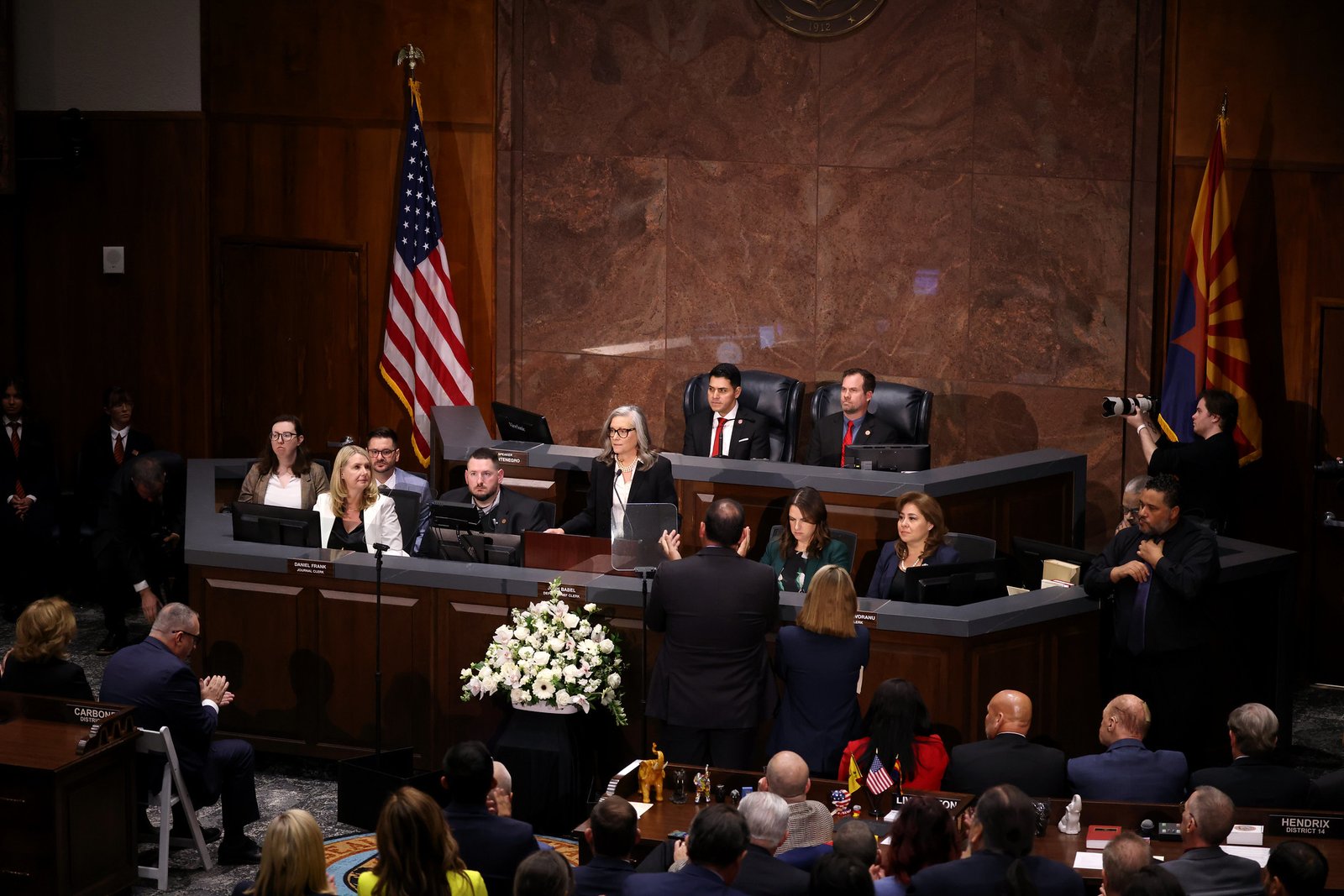Alexander Kolodin
Arizona Governor Could Be Grilled Monthly on TV by Lawmakers Under New Bill

A bill requiring monthly televised questioning of the governor by lawmakers has taken its initial step towards becoming law. The proposal, known as House Bill 2051, aims to mandate that the governor appear in the Legislature each month during the annual session for direct questioning by state lawmakers.
Rep. Alexander Kolodin, a Republican from Scottsdale and the bill’s sponsor, drew inspiration from a similar practice in the United Kingdom, where the prime minister regularly answers questions in the House of Commons. He believes this initiative will enhance civic engagement through public broadcasts, making government interactions more accessible. Kolodin expressed that the sessions would be “really fun for kids” visiting the Capitol.
In addition to increasing public engagement, Kolodin stated that the bill aims to improve communication between the legislative and executive branches. The two have historically experienced conflicts, particularly heightened since Democrat Katie Hobbs assumed office in 2023, the first Democrat to serve as governor since 2009. Hobbs’s tenure has been marked by significant clashes with Republican lawmakers, evidenced by a record number of vetoes and stalled confirmations for her administration’s appointees.
Kolodin noted the current need for more face-to-face communication, arguing that the proposed televised sessions would bridge that gap. If passed, the law would take effect in 2027, with the governor required to appear on the third Wednesday of each month in alternating sessions for the House of Representatives and the Senate.
During these monthly sessions, the governor would respond to a total of six questions: two from the majority leader and their designee, two from the minority leader and their designee, one from randomly chosen members, and one follow-up question to each inquiry. The bill recently passed out of committee with a party-line vote, advancing to the full House for further consideration.













![Trestle Management Vice President Marc Vasquez speaks to Rancho Mirage residents during an HOA meeting on March 31, 2025. [Monica D. Spencer]](https://arizonanews.org/wp-content/uploads/2025/04/Rancho-Mirage-Homeowners-Regain-Stability-Yet-One-Crucial-Element-Lingers-80x80.jpg)




